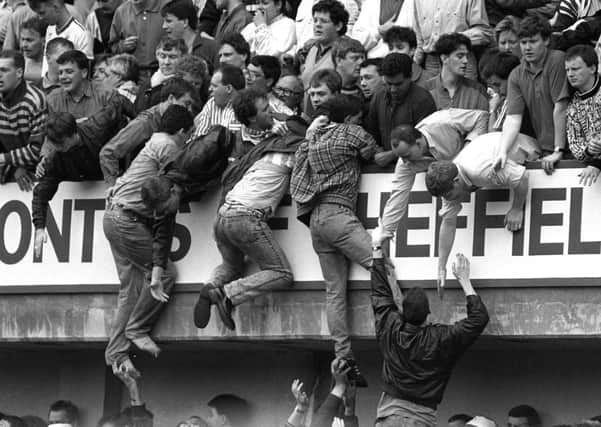Police silent on Hillsborough ‘spying’ claim


The London force refused a Freedom of Information request by the magazine Private Eye for files on the Hillsborough Justice Campaign and the Hillsborough Family Support Group.
Senior officers are facing claims the campaigners were put under surveillance in the wake of the 1989 disaster at Sheffield Wednesday’s stadium which led to the deaths of 96 football fans during the FA Cup semi-final between Liverpool and Nottingham Forest. The force has a policy to neither confirm nor deny what police moles have been up to, in a bid to protect officers who work undercover.
Advertisement
Hide AdAdvertisement
Hide AdIn a statement, it said: “We have been asked in recent days whether undercover officers were deployed into the Hillsborough campaign. We replied that we will neither confirm nor deny details of the deployment of undercover officers. This is a long-established practice to avoid criminals targeted for undercover operations drawing conclusions if we were to give negative answers in some cases but not comment in others.
“Once we start denying false or incorrect allegations, our silence in other cases could be taken as a confirmation, and that could be very damaging and dangerous for those who risk their lives to combat organised and serious criminality.
“The ‘neither confirm nor deny’ policy is a practice we also follow in the courts when asked whether an individual was an informant or an undercover officer, and judges have accepted its legitimacy in the interests of the wider public good.
“It may look strange in an era of greater transparency and accountability, but we believe this principle continues to protect those who take the greatest risks on all our behalf.”
Advertisement
Hide AdAdvertisement
Hide AdScotland Yard said the Private Eye request was refused to protect tactics, and added: “We would like to explain that the reason why under the Freedom of Information Act, we could not provide an answer, was to protect national security and undercover police tactics. The language used was relevant to those issues and was not a comment upon any of the Hillsborough Groups. We note that no-one has drawn to our attention any evidence that has been published to suggest that undercover officers were deployed over Hillsborough.”
The “neither confirm nor deny” approach prompted anger among bereaved parents trying to discover whether their dead children’s names had been used by undercover officers. Last summer Jules Carey, solicitor for Barbara Shaw who believes that her son Rod Richardson’s name was used, said she felt her complaint to Scotland Yard had been “swept under the carpet”.
A report found the names of 42 dead children were used by officers trying to create watertight false identities. Earlier Metropolitan Police commissioner Sir Bernard Hogan-Howe, who was working in the aftermath of the Hillsborough disaster, said he believed he had done nothing wrong that day.
In a Twitter chat using the @metpolice account, he said: “Great confusion on day. I don’t believe I’ve done anything wrong.”